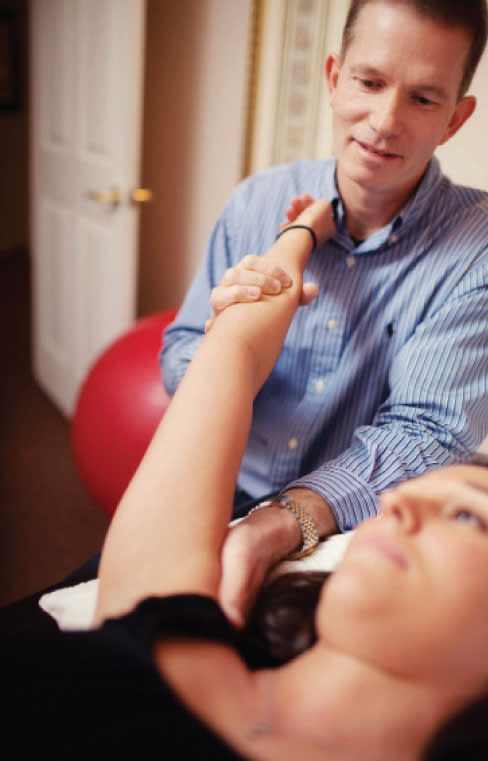My World: Rehab therapist David Stevenson
Rehab therapist David Stevenson on what hurts and what helps.

What are the most common issues you treat? Most are orthopedic, musculoskeletal problems, and probably 50 percent are post-surgical—spinal surgery, shoulder surgery, hip replacement, fracture. That's where our medical training comes into play, because we need to understand what the limitations are after surgery.
What do patients do that might set back their recovery? One of the big things is when patients take post-operative precautions too lightly. Some people are very compliant, and others think since it doesn't hurt as much that means it's healing, when really, that doesn't mean it's safe to do certain movements yet.
How do you motivate patients who get frustrated with their progress? You can't look at it day-to-day; you have to look at the big picture. Sometimes it's not leaps and bounds of progress, especially after surgery. I want patients to think where they were 30 days ago; then they can better appreciate the progress they've made.
Have you ever had injuries yourself that required therapy? Therapists are a relatively fit bunch. I've always been athletic, so I've had a variety of injuries over the years—fractured elbow, fractured wrist, broken ankle. Having gone through some of this myself helps me understand where they are, so I can be more sympathetic.
Any misconceptions you'd like to clear up? "No pain, no gain" is not always true, especially when somebody's recovering from an injury.
What about exercise trends? Exercise within your means. We get patients who have been to a group class at a gym, and they get competitive. They see somebody else and say, "Well, gosh, if he can do that, I can do that." If they have not exercised that much, that's how they end up getting injured.